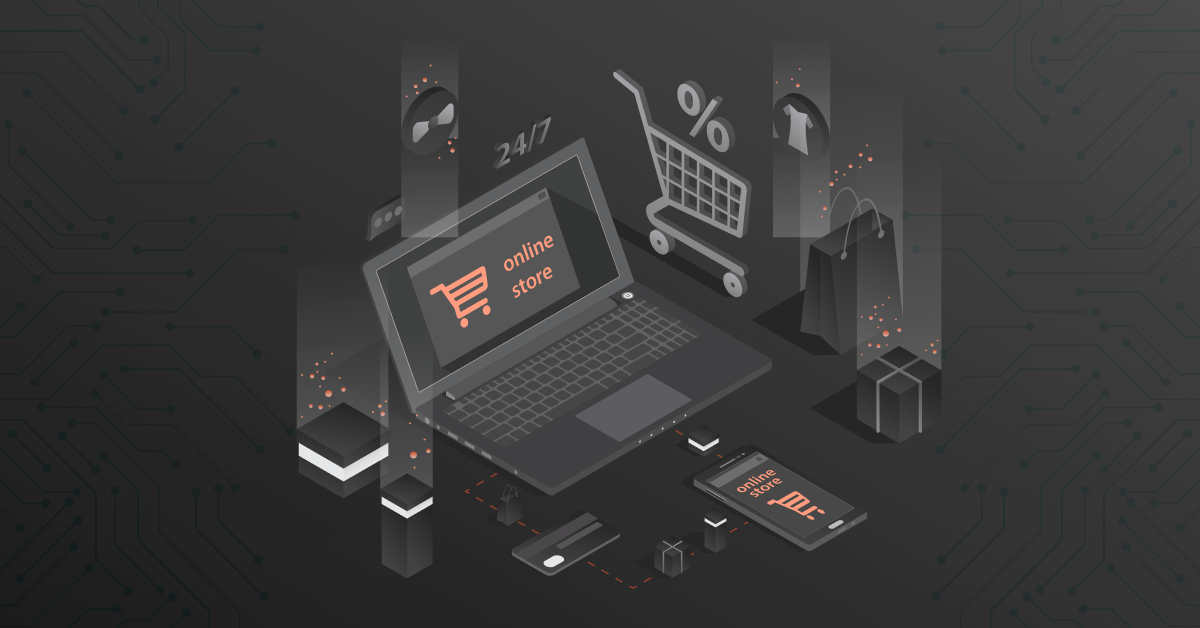Contents
Introduction
Are you ready to sell your products in the ‘new normal’ after this pandemic presides away? Despite the global standstill, businesses quickly adapted to the situation and navigated themselves onto the online world, more comprehensively now.
Unlike earlier, running a B2B business is not just having a catalog (or a big warehouse) to showcase your products and expecting big brands to walk in and buy.
Marketing has evolved, aged gracefully, and will continue to as more B2B companies are now vying for the top spot amidst this stiff competition.
The buying process for B2C and B2B is different. Unlike B2C, the B2B brands don’t possess the lucky charm to make their buyers make snap judgments.
Merchants and distributors go through many thought processes, ascertain if the products would fit in their budget, check for competitors’ pricing, examining durability, and more before they finally (might) decide to go ahead with your brand.
A study by Statista says 57% of B2B buyers want to see product information online and know about the product first. Given so, we have compiled a list of marketing channels you can use to market and sell your products in the B2B space.
Some might bring you new customers. Some might increase your website traffic. Some can get conversions. And some, a right word of mouth. No matter what the output is, B2B marketing in different channels is a train that needs to be always on the tracks, adapting itself to the market scenario.
Here are some of the avenues where B2B eCommerce Channel Marketing is possible and can help your business flourish.
- Physical Store
- eCommerce Store
- Social Media (including WhatsApp)
- Influencer Marketing
- Content Marketing
- Webinars and Trade Shows
- Email Marketing
Physical Store
There are still people who want to see, use, and feel the product before buying it. Although online buying reached newer horizons in B2B over the years, it still did not reach every nook and corner where website visitors are entirely comfortable placing their trust and big bucks on the product(s) that they have not seen yet. Also, not all products can be sold online. Automobiles, for example.
If you have a physical store, define objectives, provide strong reasons why customers should take their cars and drive all the way to your showroom to explore the products, make sure the prospective buyer is well taken care of (irrespective of whether they buy or not), and make them feel comfortable.
Importantly, answer all their queries and win their trust because that confusion is the #1 reason why they didn’t choose to buy online.
eCommerce Store
According to Forrester, B2B eCommerce transactions in the USA are expected to reach $1.8 trillion by 2023. This would account for 17% of all B2B sales in the country.
The B2B eCommerce sector is evolving, and brands are continually looking out to venture into the online space to build their brand and boost sales.
A study by Forrester again indicates that 73% of Millennials are involved in B2B purchasing decisions. However, their rise to power is mostly going unnoticed.
You’d have heard this many times: The best thing about shopping online is customers can shop from anywhere they want, anytime. No burdens involved. No fuel wasted. No calories burnt 😉
However, for the B2B buyer to purchase something without any physical guidance takes an immense amount of work by you to ensure everyone visiting the eCommerce store has a smooth, seamless digital experience.
Make sure you chose the right eCommerce platform to launch your products. Something easy to use, maintain and sell. Ensure the website is fast (because, duh, no one likes to shop on slow websites). And do your homework about the target audience and design the eCommerce store in the most visually appealing way possible. Low effort experience is the secret. Crack the code and create more customers.
With pandemic forcing more people to stay indoors, no better time than this to launch your eCommerce store (if you don’t have one yet) and greet your customers personally, virtually.
B2B Social Media Marketing
Gone are the days when social media platforms are just used to post selfies or see funny cat videos. They have now transformed into powerful places to influence buying decisions.
A research by IDC has found that;
- 91% of B2B buyers are active and involved in social media
- 84% of senior executives use social media to support purchase decisions
- 75% of B2B buyers are significantly influenced by social media
Social media selling is ultimately about building relationships. But, before you build them, you need to make sure you choose the right medium. Then, you can create new connections, provide value to your followers, and nurture leads.
Identify a social media platform where most of your target audience and potential customers are in. Create an account first, strategy next – that suits the social media platform.
Well, one strategy does not fit everywhere. For instance, LinkedIn is primarily a true-blue business hub, whereas Instagram can be used to post pictures and Facebook to share insights about work, current offerings, and so on.
Engage in online discussions, pay attention to what people are talking about, upload tips that will help viewers, and provide a value on why a social media user must click the follow button.
Your prospects, your customers, and your competitors… all use social media for business. Embrace it and watch your business grow.
Ease out. Bring people together. Build your fanbase. Engage. Entertain. Educate. Social media is fun.
Influencer Marketing
How many times have you stopped scrolling on social media to see a famous face endorse a brand? And how many times did you see a YouTube ad where an influencer was sharing their user experience about a product?
Choose a well-known person and make them talk about your brand. That’s Influencer Marketing 101 for you 😉
Influencers are more than a face for a brand. They offer a legitimate boost of credibility through endorsements, and the ripple of engagement they spark can sustain longer than the life of one marketing campaign.
Deciding which influencer will be the right fit for your brand is what makes a big difference. Team up with an influencer and create relevant content that resonates with your brand, which is of high quality.
If done, this increases brand awareness, builds trust as they have strong relationships with their fans, and helps you reach a wider audience. Above all, no need to shed some extra bucks to reach the audience as the influencer already has one.
Trust in their power to spread the word and generate conversions.
Content Marketing
How do you convince a prospect who knows nothing about your brand to buy your products? Nurturing, of course. But how are you going to nurture and (subtly) push them to take the final step? Because cold calling or manual follow-ups are a tad risky, especially in times like these.
With content marketing, you can!
And in no way should it look forced.
What do you do when you need to know something? We all go to Google, type in what we’re looking for, and get hundreds of results that answer our questions.
What if we say that using the right content marketing strategy, your article or brand name can appear on #1 in search results worldwide?
Content Marketing is your chance to create your own rules to reach your customers by constantly giving them rich, authentic, value-adding content (blogs, social media posts, videos, documentaries, reviews, and more). And why should you (or your brand) do it?
- Because you know your customer better than anyone else
- Because if you don’t, your competitor will 😉
Prepare a well laid out content marketing strategy that aligns with your sales goals, choose channels where you’ll publish the content, create multiple types of content based on the distribution channels, use the right tools to publish, and measure your metrics.
If you haven’t done any content marketing strategy yet, maybe start simple then. Say like, a social media post a day that necessarily need not have to talk about your brand. But it can be something compelling.
The better your content, the more opportunities to be found and be rewarded.
Design a plan and take swift action.
Organize Events
B2B events are dedicated to the people in your business niche for creating, developing, and maintaining professional collaborations that provide new opportunities to grow your business.
Even at this age, when we talk about online selling and going fully digital, a vast set of people go to events, conferences, and trade shows to know the current market trends.
B2B Events let you take your company on the road and showcase your value. These strategies ensure you bring much more home than just good memories.
A study says 92% of trade show attendees learn about new products, 81% of trade show attendees have buying authority and purchasing power, and 46% of executive decision-makers made purchase decisions while attending a show.
Apart from the points listed above, B2B events increase brand awareness and place your brand on a high pedestal. While this may not seem significant initially, organizing/attending events is a huge step towards developing a recognizable brand.
Boost your business’s visibility by finding new ways with events to engage prospects, connect with industry experts, build stronger relationships with other companies, and eventually gain more traction.
Organizing a B2B event is a win-win for your brand success and the attendees if you bring in incredible speakers to share their knowledge and make it a wholesome experience for everyone involved.
Now that we have given a glance at different channels for your B2B eCommerce marketing, what is your plan for moving forward?
It is never enough to sell products on just one platform and expect the sales to soar. It does not work that way anymore, at least for a majority of brands. Explore various options to take your brand to the masses. Seek their attention with unmissable visual content. And build your brand.
Try some of these. Or all of these. Go for it!




